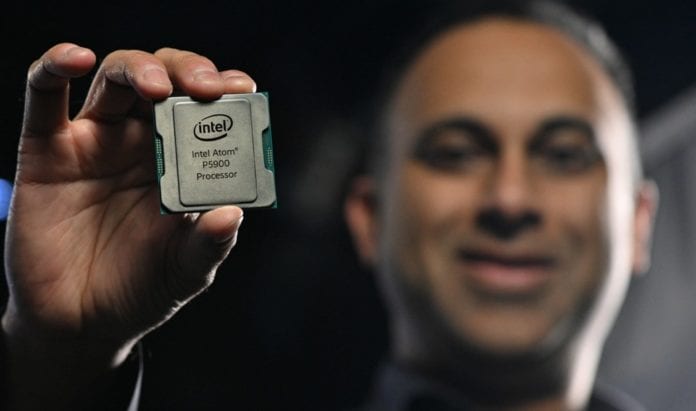Incoming CEO Pat Gelsinger sees major new revenues from combination of 5G and distributed computing
During what would’ve been Mobile World Congress 2020, which was ultimately scrapped due to the then-still-emerging COVID-19 pandemic, Intel laid out its thinking around 5G–a $25 billion silicon opportunity by 2023 that the chipmaker wanted to capture a 40% share of by 2021, earlier than initial forecasts of 2022.
Well, according to commentary from outgoing CEO Bob Swan on an quarterly financial reporting call last week, Intel hit its goal in 2020 and Swan’s successor, VMware chief Pat Gelsinger, sees the combo of 5G and distributed compute as a long-term revenue driver for the company.
According to a transcript prepared by Seeking Alpha, Swan, who is set to leave the top spot at Intel in mid-February, said, “In 2020 we expanded our footprint into the Radio Access Network delivering Xeon SoCs, FPGAs, and custom solutions for 5G base station designed and [reached] our goal of 40% share two years ahead of our original target.”
“Today, we are the leading network silicon provider winning in wireless, enterprise, and cloud networks, and delivering $6 billion in revenue this year, up approximately 20% versus 2019.”
Today 5G is largely a consumer-facing service with limited geographic reach. But there seems to be industry consensus that the real long-term revenue opportunity associated with 5G will come from new types of enterprise services that combine higher throughput, lower latency, heightened reliability, and support for massive numbers of IoT devices. To fully deliver on that, operators need to stand up the 5G RAN but also build out distributed cloud computing infrastructure to process data closer to where its generated so as to not negate the latency gains.
Swan hit on this in his commentary and paired 5G with “network transformation as a significant opportunity for us to expand the role we play as more and more compute moves from the data center to the cloud to the network and those dumb pipes become smarter and smarter pipes.”
In his role with VMware, Gelsinger has overseen the development of that company’s 5G strategy, which is based on unified multi-cloud management and orchestration with a focus on service delivery and monetization.
He joined the investor call last week, noted his work on 5G at VMware, and characterized the opportunity as “horizontal versus a vertically-controlled industry…5G is going to represent a platform that is redefining edge computing; it will open up smart cities, smart factories, it will displace Wi-Fi. This is a powerful technology. It will also be deployed in private 5G environments as well.”
Click here to review Intel’s Q4 and full-year 2020 financials.

